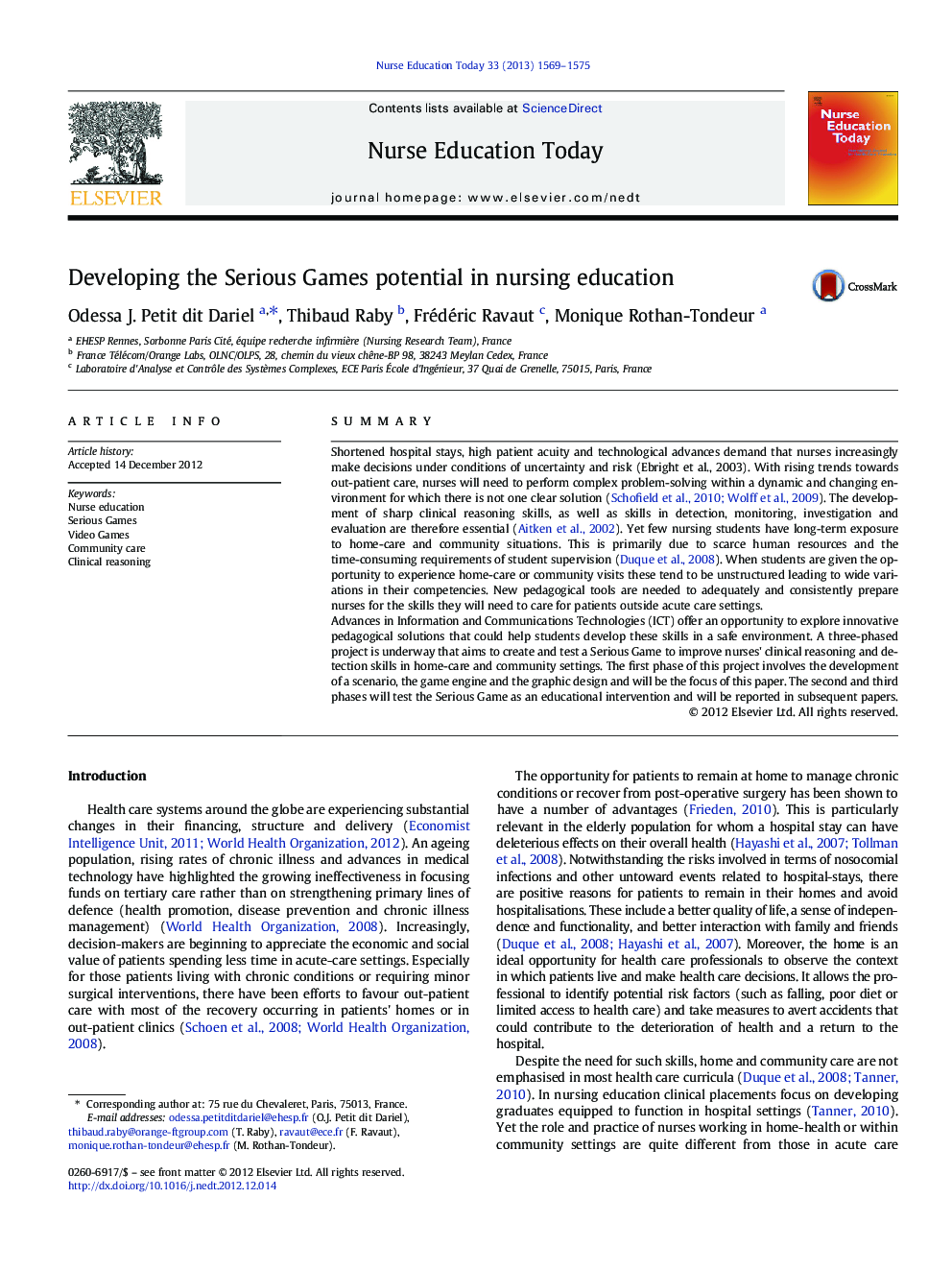| Article ID | Journal | Published Year | Pages | File Type |
|---|---|---|---|---|
| 368363 | Nurse Education Today | 2013 | 7 Pages |
SummaryShortened hospital stays, high patient acuity and technological advances demand that nurses increasingly make decisions under conditions of uncertainty and risk (Ebright et al., 2003). With rising trends towards out-patient care, nurses will need to perform complex problem-solving within a dynamic and changing environment for which there is not one clear solution (Schofield et al., 2010 and Wolff et al., 2009). The development of sharp clinical reasoning skills, as well as skills in detection, monitoring, investigation and evaluation are therefore essential (Aitken et al., 2002). Yet few nursing students have long-term exposure to home-care and community situations. This is primarily due to scarce human resources and the time-consuming requirements of student supervision (Duque et al., 2008). When students are given the opportunity to experience home-care or community visits these tend to be unstructured leading to wide variations in their competencies. New pedagogical tools are needed to adequately and consistently prepare nurses for the skills they will need to care for patients outside acute care settings.Advances in Information and Communications Technologies (ICT) offer an opportunity to explore innovative pedagogical solutions that could help students develop these skills in a safe environment. A three-phased project is underway that aims to create and test a Serious Game to improve nurses' clinical reasoning and detection skills in home-care and community settings. The first phase of this project involves the development of a scenario, the game engine and the graphic design and will be the focus of this paper. The second and third phases will test the Serious Game as an educational intervention and will be reported in subsequent papers.
